BLADE RUNNER 2049 Review
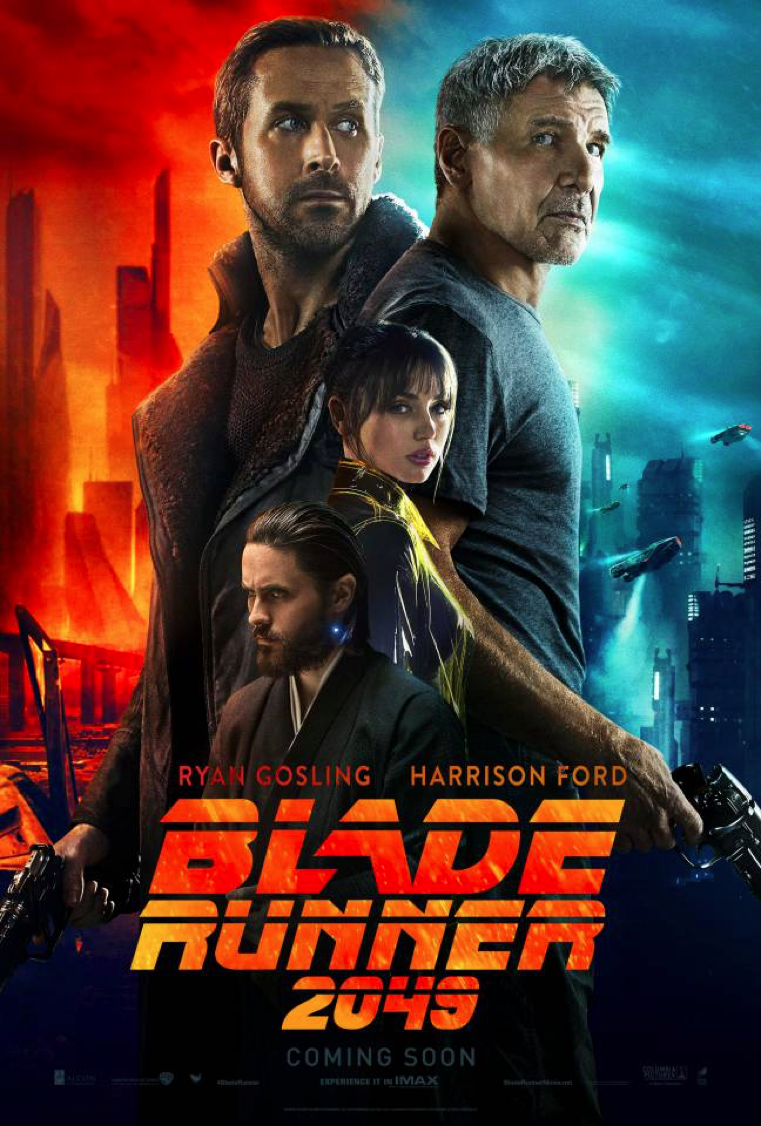
Director: Denis Villeneuve
Genre: Sci-Fi
Year: 2017
I seem to have this natural aversion to movies more than two-and-a-half hours long, but BLADE RUNNER 2049 kept me engaged all throughout its behemoth runtime. Looking at the film independently from its 1982 original, it’s cinematic gold. With stunning production design and innovative cinematography, the film has enough substance to touch on many deep philosophical issues about the idea of humanity and what it really means to be human. It has all the elements of what I would expect a BLADE RUNNER sequel to have, but despite that, I can’t help but feel like it lacked a certain ingenuity that seemed to seep through every frame of its predecessor.
BLADE RUNNER 2049 introduces Officer K (Ryan Gosling) as a newer model of the “more human than human” androids created to “retire” wayward antecedent versions of itself. After successfully retiring one of these rogue older models, K literally unearths a decades-long mystery intermingling the original film’s mystifying duo and the future of replicants everywhere. On his quest to solve the enigma behind a deceased replicant mother and her missing-or-dead child, K finds ex-blade runner Rick Deckard (Harrison Ford) in exile.
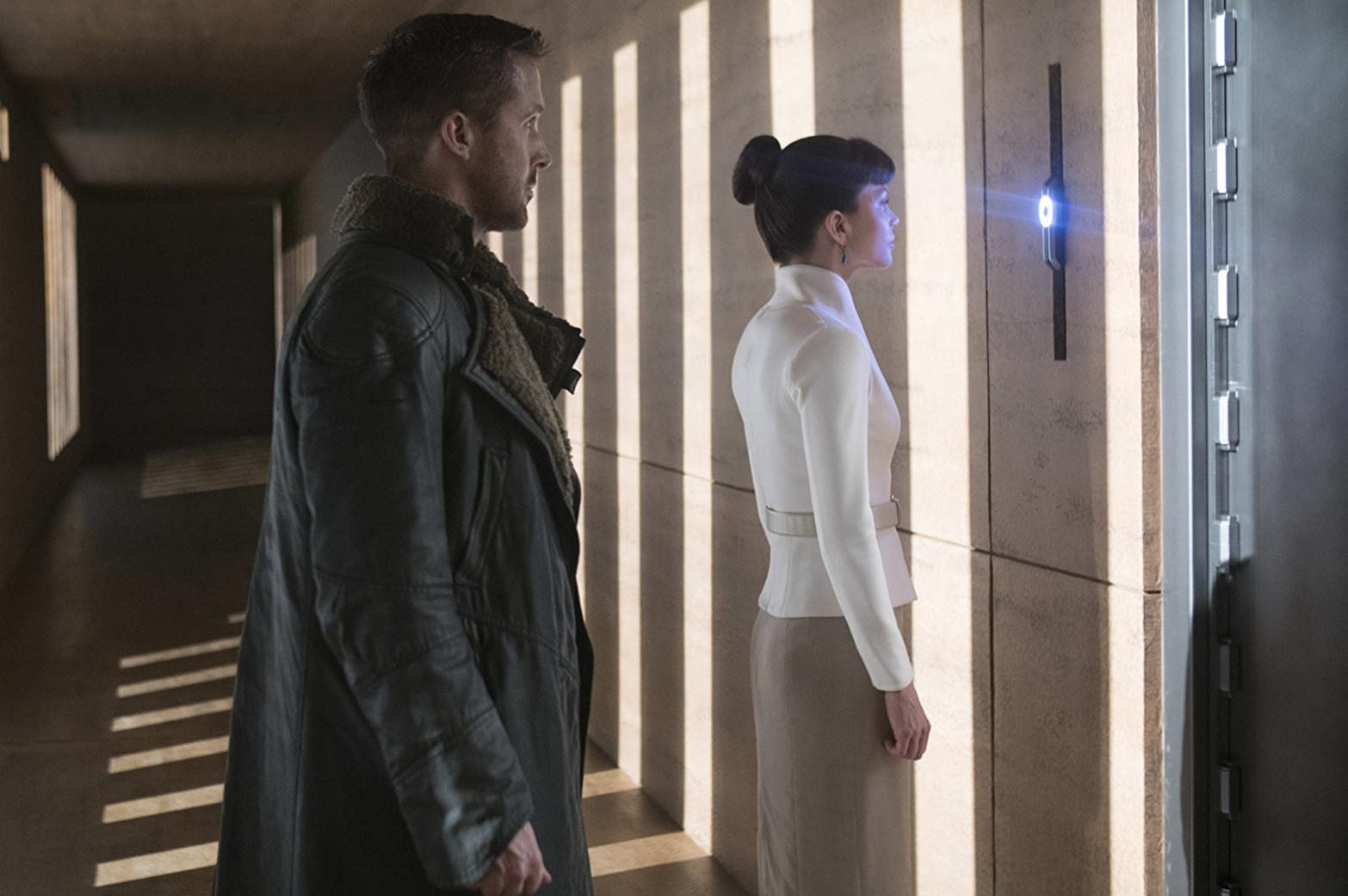
“Edna Mode . . . and guest.”
It’s interesting to see how BLADE RUNNER 2049 strikes a balance between the past, present, and future. While still retaining many of the original film’s themes, it adds its own flair in recreating the same dystopian world thrust 30 years forward. The deep layers of philosophical themes that permeate the film question corporeality. Does having a soul necessitate being human? If yes, does that make humans more valuable than replicants—deeming the latter dispensable? These are issues brought up in 1982 that the sequel does well to further explore. After K learns that he has to retire a child—born from the womb and not one of billionaire Niander Wallace (Jared Leto)’s replicant incubators—he seems to be, for the first time in the film, distraught. “To be born is to have a soul, I guess,” he says to his boss, Lieutenant Joshi (Robin Wright). To this, she replies that he’s been getting along fine without one.
Stylistically, this film is genius. Roger Deakins’s cinematography is cause alone for me to go back to the cinema. The production design and visual effects help build a world filled with dark, melancholic beauty. Benjamin Wallfisch and Hans Zimmer’s hypnotic score—though it doesn’t quite reach the original’s par—pulls you in with every synth note. The entrancing performances contribute to the believability of a bleak dystopian world where human-like robots try to escape their subservient roles in society. It was such an experience watching this film on the big screen, and the sheer beauty and grandeur of BLADE RUNNER 2049 is definitely worth being in the cinema for nearly three hours.
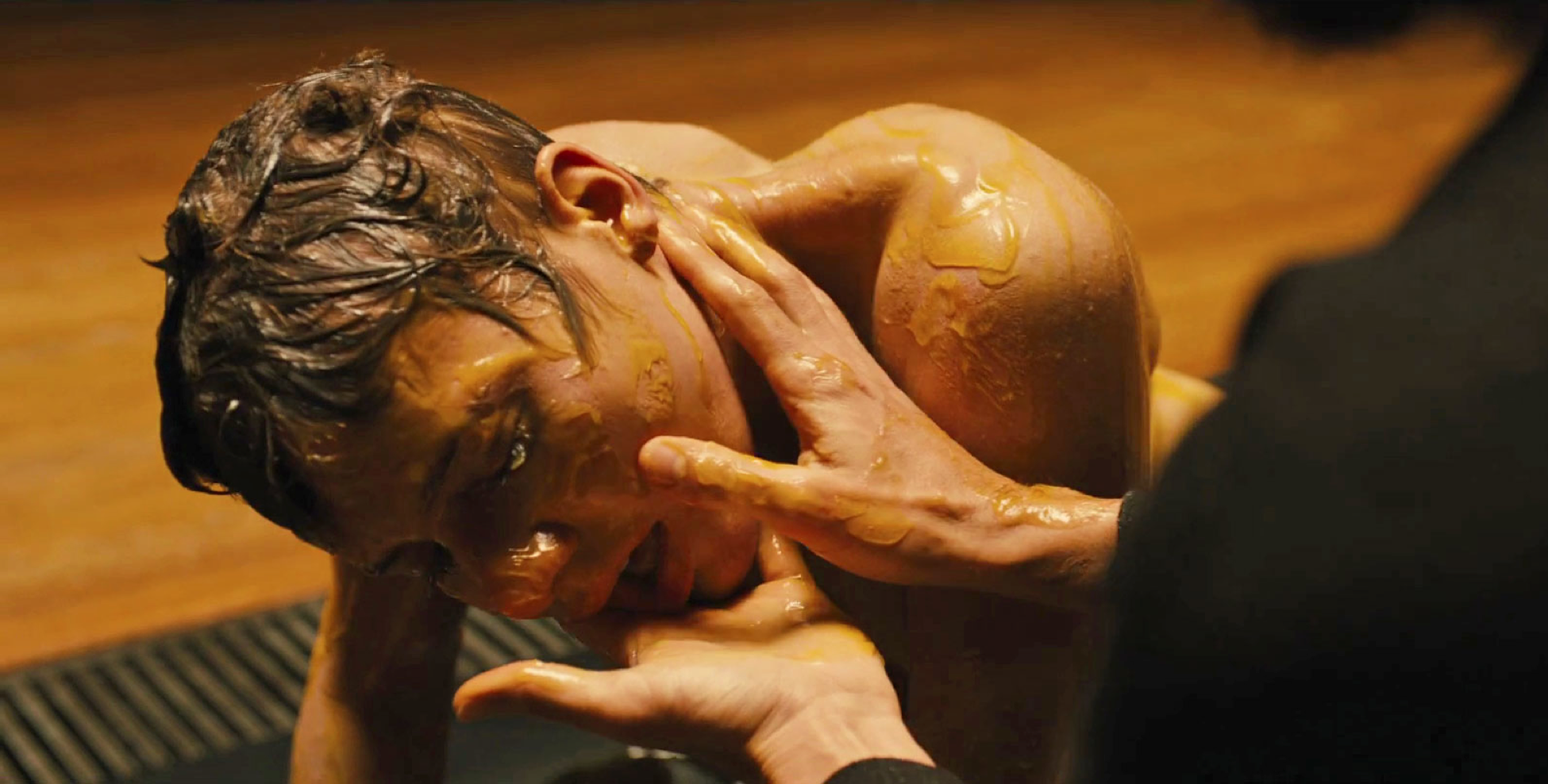
Winner of the 2049 Nickelodeon Kids’ Choice Awards
While I do admit that the film kept me engaged, that doesn’t necessarily mean that I enjoyed all of it. For one thing, at times it can get a little slow—even though it does help set the tone and mood. However, the film begins to drag somewhere between seemingly 10-minute-long shots of K s l o w l y investigating one empty building after another and the prolonged scenes of confusing dialogue. If anything, BLADE RUNNER 2049 knows how to take its time.
One thing this and its predecessor share is commentary on the objectification of women—but BLADE RUNNER 2049 takes that and pushes it even further. The Blade Runner universe takes the heterosexual male fantasy and exacerbates it to the extent that all of the women in 2049 serve only the needs and storylines of men, specifically K and Deckard. Even with phenomenal performances by the female cast, the women in this film are as flat as walls and stereotypical as hell. K’s love interest Joi (Ana de Armas) is a hologram designed to tell its consumers “whatever [they] want to hear.” Their relationship is idyllic (for him) in how perfectly she adheres to his needs—her Siri-like programming prohibits her from being any kind of a nuisance to K. Then there’s Luv (Sylvia Hoeks), the murderous and coldly antagonistic android. While strong and driven, there’s a constant reminder that she only does things to please her master, Wallace. The fiery lieutenant, the isolated memory-maker, and the curious sex worker—no matter who the women in this film are, their ultimate purposes and character arcs are sidelined and discarded.
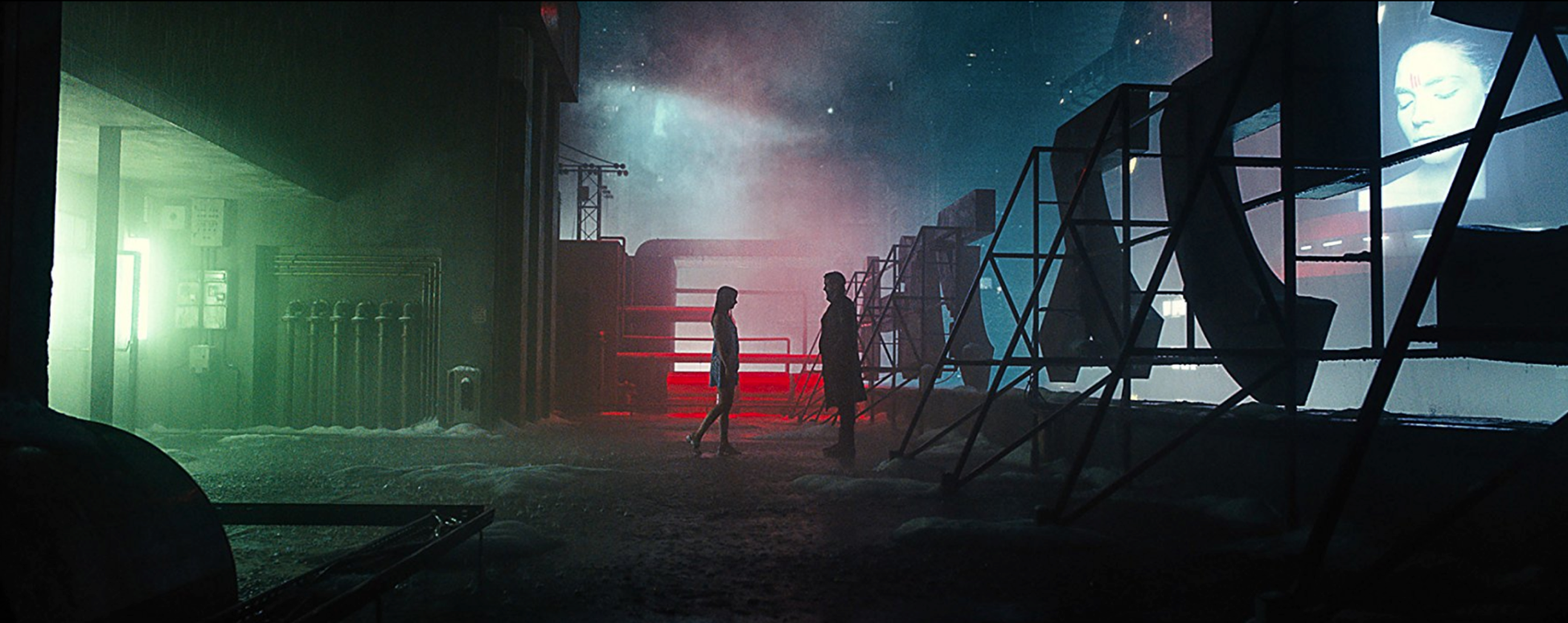
A visual homage to the Powerpuff Girls
There is an argument to be made that the one-dimensionality of these characters is to illustrate the detrimental consequences of a hypersexualized view of women that minimizes them to mere objects to be consumed. If society continues on this trend of objectifying women, it will swell to become an industry where their bodies are literally turned into objects for consumption. However, the film could have touched on that while still allowing for its four main female characters (a shocking amount for a science fiction film) to have a narrative separate from that of the two male blade runners. All their wants and desires are centered on how to contribute to K and Deckard’s storylines. Apparently society in 2049 will still be beholden to the desires of heterosexual males. Hopefully in 2079 the Blade Runner universe will learn to form female characters with actual depth and complexity.
The dark and twisted world of BLADE RUNNER 2049 is the perfect setting for a further exploration into the existentialist questions of what it means to be human when so similar a species could be created artificially. There is an overlaying majestic despondency that pervades through the film, and the whole thing feels like a dream. While I drifted along in this aesthetically-pleasing journey, it ended up leaving me in awe, contemplating the core philosophical queries raised over its duration. I left the theatre in a daze, wondering if androids dream of electric sheep.
Also, a side note: does anybody else think Denis Villeneuve looks like Chris O’Dowd?
Verdict: Recommend

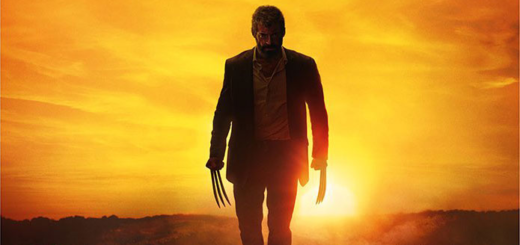
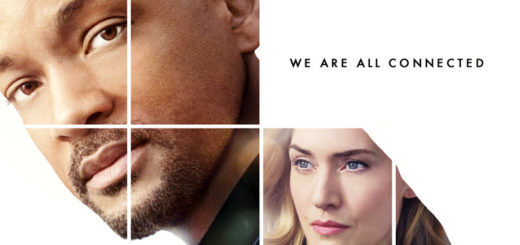
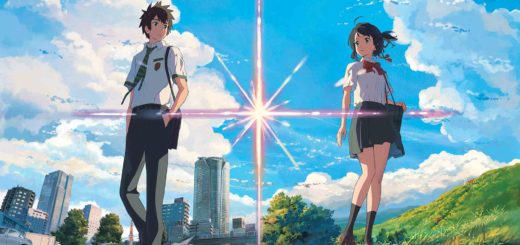
2 Responses
[…] deaths that we are forced to watch in horrifying detail.” Jordan Valdes says it is a “heterosexual male fantasy.” David Jenkins at Little White Lies, has a similar […]
[…] WORLD, but he also managed to do it in the same year that he released ALIEN: COVENANT and produced BLADE RUNNER 2049. However, let’s focus on the former. This really excites me. After all, what a brilliant trick to […]